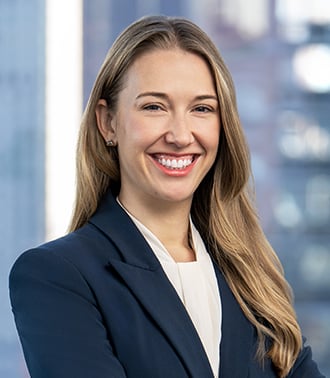New DOJ COVID-19 Fraud Enforcement Task Force Promises to Augment the Detection and Disruption of Pandemic-Related Fraud
On May 17, 2021, Attorney General Merrick Garland announced the creation of the COVID-19 Fraud Enforcement Task Force (Task Force), which he charged with “bring[ing] together the full power of the federal government to bolster” DOJ’s enforcement efforts against the various kinds of fraud associated with the pandemic. The Task Force will target a variety of fraudulent activities—some of which are “variations on common schemes” while others are “unique to the pandemic”—including those involving counterfeit personal protective equipment, fake vaccines and unlawful accumulation of scarce goods for the purpose of price gouging. Perhaps most significantly, the new Task Force will continue DOJ’s focus on recipients of CARES Act funding, including the Paycheck Protection Program (PPP), Economic Impact Payments, Pandemic Unemployment Assistance, and others. Indeed, when the Task Force convened its inaugural meeting on May 27, 2021, its members specifically identified “increased efforts to combat fraud related to” the CARES Act as a key enforcement priority.
To punctuate the point, on the day before the meeting DOJ announced a series of “coordinated law enforcement action[s]” to combat health care fraud related to COVID-19. The cases involve Medicare fraud, bribery, and the CARES Act Provider Relief Fund, which is intended to help healthcare providers who were financially impacted by COVID-19. Notably, the department announced charges against 14 defendants for allegedly participating in various health care fraud schemes that exploited the pandemic and resulted in more than $143 million in false billings.
Even before the announcement, Arnold & Porter’s CARES Act Fraud Tracker shows that DOJ’s efforts to combat COVID-19-related fraud have been relatively robust. Indeed, Attorney General Garland’s announcement included a tip of the hat to the department’s success over the last year. Since the beginning of the pandemic, DOJ has charged nearly 600 defendants who sought or obtained more than $600 million in pandemic-related funds.
Attorney General Garland’s announcement highlighted a few examples of that success, which also demonstrated the involvement of several different Inspectors General. The Small Business Administration’s Inspector General, for example, led an investigation involving allegations of a nine-person conspiracy to fraudulently obtain $24 million in PPP loans. For its part, the Department of Labor’s Inspector General investigated a three-person conspiracy that filed fraudulent unemployment claims for more than $2.5 million in COVID-19 relief funds. And the Federal Housing Finance Agency’s Inspector General participated in an investigation of an alleged California fraud ring in which several individuals supposedly submitted over 150 fraudulent Economic Injury Disaster and PPP loans seeking almost $22 million in COVID-19 relief funds.
But the new Task Force obviously creates expectations that considerably more is on the horizon. To that end, the Deputy Attorney General will lead the group, which will include—among others—the heads of DOJ’s litigation components, United States Attorneys, the Executive Office for US Attorneys, the FBI, and a host of Inspectors General from virtually every agency with jurisdiction over potential fraudulent activity related to COVID-19.
The Task Force will not limit itself to enforcement efforts. As one more part of its mission, the group will also seek to raise public awareness of the issues surrounding pandemic-related fraud, in part through a DOJ website dedicated to providing resources to help Americans stay educated and protect themselves from fraud.
As the country emerges from the pandemic itself, the AG’s decision to stand up a new Task Force is a reminder that the pandemic’s economic impact will linger. DOJ will continue to target those who schemed to take advantage of COVID-19 and those who may still be doing so. The department’s continued attention on this issue sends a clear message: DOJ will aggressively pursue those who have exploited the COVID-19 crisis, even as the public health crisis abates and the economy begins to recover.
You can read more posts on this topic here. We routinely advise borrowers and lenders on issues arising under the PPP and other CARES Act programs. If you have any compliance- or enforcement-related concerns, the authors and Arnold & Porter’s Task Force are available to answer questions and provide guidance.
© Arnold & Porter Kaye Scholer LLP 2021 All Rights Reserved. This blog post is intended to be a general summary of the law and does not constitute legal advice. You should consult with counsel to determine applicable legal requirements in a specific fact situation.


